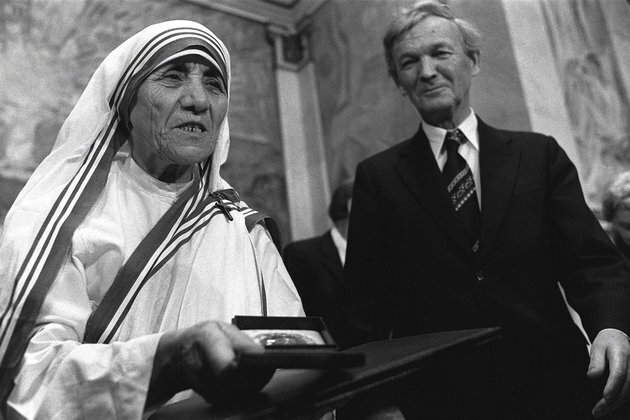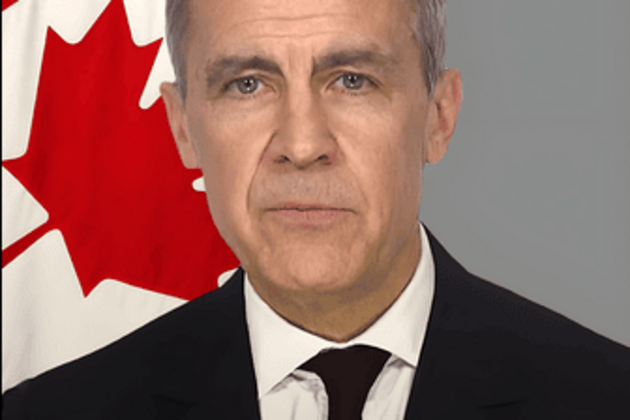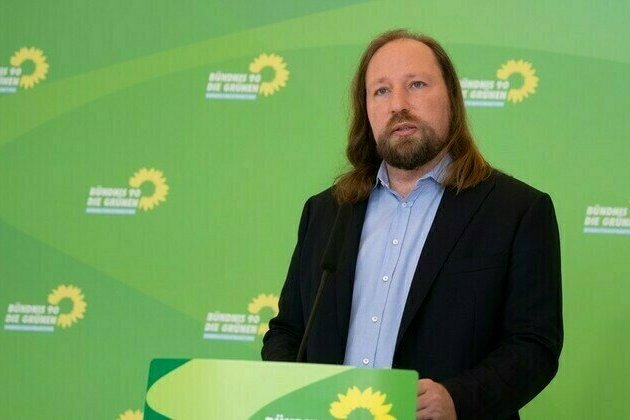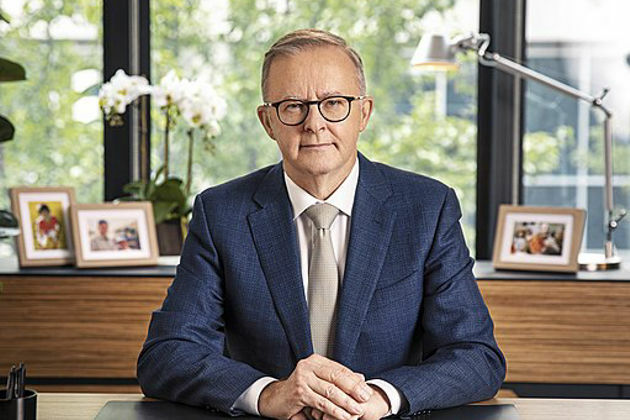The Nobel Peace Prize often reveals how contentious peace can be
The Conversation
20 Sep 2023, 02:08 GMT+10

Leading up to the announcement of the Nobel Peace Prize, there is widespread speculation about who will win.
There are 351 nominees for the 2023 prize, 259 individuals and 92 organizations. Although the list is confidential, there is widespread speculation about who's on it, including favourites and long shots, repeat and first-time nominees.
This global moment of interest in peace is important, but it doesn't tell us much other than that peace is elusive.
Looking at the longer history of the Nobel Peace Prize tells us that peace takes many forms, including ending armed conflicts, resisting racial discrimination, standing up for the oppressed and caring for the vulnerable. Peace can also be political and controversial.
Taking a stand against war
The early recipients were usually prominent men from Europe and the United States, and their peace work took the form of preventing or ending wars.
The first Nobel Peace Prize was jointly awarded in 1901 to Frederic Passy, a French economist and politician who founded the French Peace Society and organized a peace congress in 1878. American president Theodore Roosevelt received the 1906 prize for "his role in bringing to an end the bloody war recently waged between two of the world's great powers, Japan and Russia."
Over time, the list of laureates has expanded to include women and non-elites from all over the world.
Betty Williams and Mairead Corrigan did clerical work in Belfast and became peace activists after the death of three children in an IRA-related incident.
Corrigan was aunt to the children; Williams witnessed their deaths. They shared the 1976 prize for launching a peace movement to end sectarian violence in Northern Ireland.
Protecting people, defending human rights
Humanitarian work that supports people who are in danger or vulnerable has informed the selection of peace laureates from the start of the Nobel Peace Prize.
Henri Dunant, a Swiss businessman who had established the International Committee of the Red Cross in 1863 to assist wounded soldiers, shared the 1901 prize with Passy. Dunant was selected because of "his humanitarian efforts to help wounded soldiers."
Fridtjof Nansen, the League of Nations High Commissioner for Refugees, received the award in 1922 for his work to repatriate prisoners of war after the First World War and for creating the Nansen passport for refugees. Mother Teresa won in 1979 for caring for people who were terminally ill, abandoned and destitute.
In 1992, Rigoberta Menchú Tum of Guatemala was recognized for her advocacy of Indigenous rights, social justice and "ethno-cultural reconciliation."
Human rights activists have also figured prominently as laureates since the 1960s, starting with Martin Luther King Jr. in 1964 for "his non-violent struggle for civil rights for the Afro-American population."
Other human rights laureates include Rene Cassin (1968), a drafter of the Universal Declaration of Human Rights, Aung San Suu Kyi (1991) for her efforts to establish democracy and human rights in Myanmar, and Maria Ressa and Dmitry Muratov (2021) for their defence of freedom of expression.
International co-operation
The prize has also recognized efforts to create internationalist attitudes and improve standards of living as essential contributions to establishing peace among nations and ensuring people live in security and with dignity.
American peace activist and social reformer Jane Addams received the 1931 prize, at the height of the Great Depression, for her efforts to "rekindle the spirit of peace" in the United States and "the whole of mankind."
U.S. President Barack Obama was selected in 2009 for "his extraordinary efforts to strengthen international diplomacy and co-operation between people," while Muhammad Yunus, a South Asian economist, won in 2006 for setting up a bank to provide small long-term loans to people living in poverty so that they could become financially independent.
Politicizing peace
But peace can become political when its advocates oppose or try to reform governments and societies that are pursuing hostile foreign relations or promote and perpetuate injustice and oppression at home.
Between the two world wars, the Nobel Peace Prize was awarded to politicians, diplomats and officials who made substantial efforts to avoid future conflict, even though they were ultimately unsuccessful.
That included those who supported the League of Nations or negotiated agreements, like the 1925 Locarno Treaties, that were supposed to guarantee the borders between Germany and France and Germany and Belgium, and the Kellogg-Briand Pact of 1928 renouncing war as an instrument of state policy.
The 1964 prize to King, four years before his assassination, was a timely intervention in the American civil rights movement. The 1983 award to Lech Walesa, leader of the trade union Solidarity in Poland, made an anti-communism statement.
Controversial laureates
The selection of laureates can be controversial, and several have been criticized for acts and beliefs that are inconsistent with peace.
There was an outcry when Henry Kissinger, the U.S. secretary of state, received the prize for his part in negotiating a ceasefire in Vietnam.
Mother Teresa was also criticized for denying people in her care pain relief.
As Myanmar's leader, Suu Kyi was denounced internationally for denying the genocide of Rohingya Muslims. The Nobel Committee explained that her prize could not be withdrawn after the fact.
Peace can threaten the powerful
The pursuit of peace itself provokes opposition because it demands change.
Abolishing war limits the way governments promote national security. Authority and privilege are challenged in the face of calls to eliminate racism, empower Indigenous Peoples, respect freedom of expression and achieve socio-economic equality.
Even though peace might seem unobjectionable, the history of peace is a story of resistance, contesting the status quo and precarious advances.
Author: Francine McKenzie - Professor of History, Western University 
 Share
Share
 Tweet
Tweet
 Share
Share
 Flip
Flip
 Email
Email
Watch latest videos
Subscribe and Follow
Get a daily dose of Calgary Monitor news through our daily email, its complimentary and keeps you fully up to date with world and business news as well.
News RELEASES
Publish news of your business, community or sports group, personnel appointments, major event and more by submitting a news release to Calgary Monitor.
More InformationNorth America
SectionCanada-US trade talks resume after Carney rescinds tech tax
TORONTO, Canada: Canadian Prime Minister Mark Carney announced late on June 29 that trade negotiations with the U.S. have recommenced...
US fighter jets intercept suspicious plane over Trumps golf club
Five separate incursions into restricted airspace occurred over Bedminster on Saturday, NORAD has said US fighter jets intercepted...
US fighter jet intercepts suspicious plane over Trumps golf club
Five separate incursions into restricted airspace occurred over Bedminster on Saturday, NORAD has said An F-16 fighter jet intercepted...
German MPs demand more money for Ukraine Bild
Green Party lawmakers reportedly want to spend at least 8.5 billion on weapons for Kiev A group of German lawmakers from the Green...
Musk announces creation of new party
The billionaire has vowed to give freedom back to the people and accused the US elites of bankrupting the nation ...
Musk forms America Party
The billionaire has vowed to give freedom back to the people and accused the US elites of bankrupting the nation ...
Canada
SectionCanada-US trade talks resume after Carney rescinds tech tax
TORONTO, Canada: Canadian Prime Minister Mark Carney announced late on June 29 that trade negotiations with the U.S. have recommenced...
Lululemon accuses Costco of selling knockoff apparel
Vancouver, Canada: A high-stakes legal showdown is brewing in the world of athleisure. Lululemon, the Canadian brand known for its...
Australian PM rejects US pressure to ease biosecurity rules
SYDNEY, Australia: Australia will not ease its strict biosecurity rules during trade talks with the United States, Prime Minister Anthony...
Rangers activate OF Wyatt Langford, option INF Justin Foscue
(Photo credit: Raymond Carlin III-Imagn Images) The Texas Rangers activated outfielder Wyatt Langford from the 10-day IL on Saturday...
Blue Jays win second straight in extra innings vs. Angels
(Photo credit: John E. Sokolowski-Imagn Images) Addison Barger hit an RBI single with two outs in the 11th inning and the Toronto...
Elks search for their first win of the season against Redblacks
(Photo credit: Anne-Marie Sorvin-Imagn Images) Since COVID-19 canceled the 2020 CFL season, the Edmonton Elks have tried multiple...












